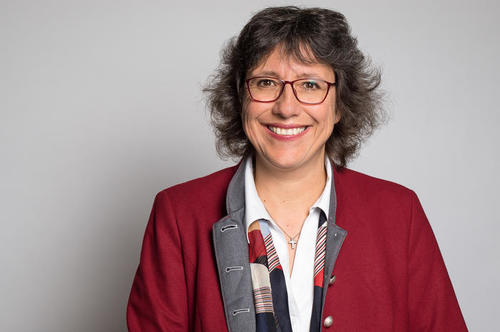Academic Freedom Matters
A joint series by Freie Universität Berlin, Humboldt-Universität zu Berlin, and the Cluster of Excellence SCRIPTS
Freedom is the foundation upon which scientific work is built. Without it, there is no independent research, no controversial debate, no societal progress. However, it is precisely this freedom that is increasingly coming under pressure – both in Germany and around the world. Academics and universities are increasingly faced with high-stakes challenges that involve undue political influence, demands for controversial events to be canceled, international tensions, and ethical conflicts.
“Societies are at their strongest and most productive when everyone is able to fully and freely realize their talents and potential. But this requires access to independent information and scientific expertise. Academic freedom is thus a basic pillar of democracy – it is a necessary driver of collaborative innovation.” – Günter M. Ziegler, President of Freie Universität Berlin
The history of both of our universities is closely tied to questions of democracy, responsibility, and international partnerships – making the subject of academic freedom within our communities particularly relevant.
Freie Universität Berlin was founded in 1948 by professors and students in response to the persecution faced by students who were critical of the system at the university on Unter den Linden, at that time located in the Soviet sector of the divided city. Since it was founded, Freie Universität has been a place for open discourse and critical reflection. Humboldt-Universität zu Berlin was founded in 1809 as the Friedrich-Wilhelms-Universität and renamed in 1949. It too was founded in the spirit of science’s responsibility to society – and to act as a shaping force for the future.
These stories of our past and the histories of our universities hold us accountable – especially now, where academic freedom is under so much pressure, be it through political expectations, debates about cancel culture, international interdependencies, or economic influence.
With the “Academic Freedom” series, put together with contributions from both institutions, we aim to inform, raise awareness, and promote dialogue. What does academic freedom mean today – on an individual and an institutional level? Where are its limits; where is it under threat? And what role do science and academia themselves play in upholding this freedom?
“The German Basic Law declares that sciences, research, and teaching shall be free – it recognizes academic freedom as a basic right. The only limitation placed on this right is that science and research be carried out in accordance with the fundamental values laid down in the Basic Law. The importance of protecting academic freedom is being made clear by current developments in the USA and elsewhere. Those looking to advance society and the economy through their research must be allowed to work freely. Academic freedom and fundamental constitutional values are priceless assets that we at Humboldt-Universität zu Berlin champion and defend.” – Julia von Blumenthal, President of Humboldt-Universität zu Berlin
During the current summer semester, we will be providing insight into ongoing debates surrounding academic freedom. We will shed light on legal, political, and ethical dimensions of academic freedom, while providing researchers from both universities with a platform to share their expertise and unique perspectives. Our aim is to draw attention to academic freedom and raise awareness of its importance – for researchers, for students, and for everyone with an interest in science and research.
Freie Universität and Humboldt-Universität zu Berlin are advocates for a scientific system that is strong and open to all – and that is built upon values such as autonomy, responsibility, and critical discourse.
Academic freedom is not a privilege. Nor, if viewed from a global perspective, is it something to be taken for granted. It is, however, undoubtedly necessary if universities are to preserve their key function as places of learning and innovation – and where conflicting points of view are allowed to coexist. We can only answer the big questions of our times if scientists and scholars are free to carry out their work uninhibited.
Voices of Academic Freedom
Scholars and researchers from Freie Universität Berlin and Humboldt-Universität zu Berlin share the latest insights from their fields – from conflict studies, to moral philosophy and public law, to virology












